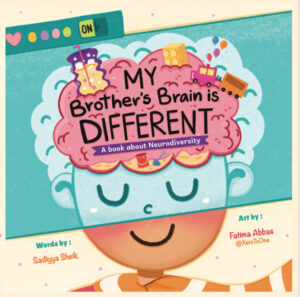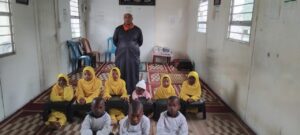It is not about choosing between his mother and his wife, it is about setting the parameters for managing his mother and marriage with justice, writes Dr Quraysha Ismail Sooliman.
I recently read two posts on WhatsApp. Both posts need some discussion. The first one read, “Sisters, do not let your man choose between you and his mother. Don’t shut the door to his Jannah” whilst the second post referenced the hadith where Ali ibn Abi Talib said, that the Prophet said: ‘If my Ummah bears fifteen traits, tribulation will befall it.’ Someone asked, ‘What are they, O Messenger of Allah?’ He said, “…when a man obeys his wife and disobeys his mother; and treats his friend kindly whilst shunning his father…”[At-Tirmidhi]
The foundational ethical core in Islam is justice. This means that obedience is tempered by justice. But this is not what is taught with regards relationships. Marriage in particular. There is a continuous struggle in marriages today especially where one is trapped between obedience to a parent/ inlaws and a spouse and maintaining justice between the two. What I am addressing here is the question of living with inlaws and parents and the burden it places on the marriage. The marriage is a strong contract in Islam and cannot be underscored as being less than that of the obedience to one’s parents. Both relationships have aspects that affect one’s din. Both relationships require obedience and justice. Not obedience to one that leads to the oppression of the other. It also has a reciprocal lens – that of the role of the parents and in-laws in the marriage of their children.
Obedience balanced on justice
In many instances siblings abandon their responsibility to their parents, saddling instead one of the children with caring and taking care of the parent or parents. There is a perverted mentality that prevails where the one saddled with the sole responsibility of being responsible for the parents is expected to sacrifice his/her marriage and relationship with his/her family but the same is not expected from those who have abandoned their responsibility. Such realities manifest daily and are the result of a failure to understand the difference between obedience to one’s parents and establishing justice in relationships. Having an inlaw/parent on you, and in between you and your spouse constantly, is not conducive to a healthy marriage. Parents need to let their children go. They also need to maintain their own dignity and identity. This is why Islam teaches us to position Allah in our lives and to not obsess or worship our children and spouses. It is about an inherent independence by being in the presence of Allah SWT. The Quran makes it clear that each has their own home, Sura Nur Verse 61 “There is not upon the blind [any] constraint nor upon the lame constraint nor upon the ill constraint nor upon yourselves when you eat from your [own] houses or the houses of your fathers or the houses of your mothers or the houses of your brothers or the houses of your sisters.”
The Extended family
The family is the cornerstone of the society. The extended family living arrangements is not Islamic. It is an Indian or ethnic tradition. From the seerah of the Prophet and the stories of the Sahaba it is evident that each kept their own homes. Visiting the parents and taking care of their needs is what Islam advocates strongly. Kindness to parents has been enshrined. But nowhere does it say live with your parents. The institution of marriage is sacred and to preserve that sanctity couples need their own space and their own opportunities to grow and bond. According to Sheikh Kutty “What is important in Islam is for the children to take the responsibility of caring for the parents especially when they are in advance age and when they are unable to take care of themselves. This is an obligatory duty on children. However, this duty does not necessarily imply that the children have to live together all in the same apartment so long as the children fulfill their responsibilities by living in close proximity even though they aren’t in the same house or apartment. By doing so, they would have fulfilled their religious duty.”
In this regard, it is not about choosing between his mother and his wife it is about setting the parameters for managing his mother and marriage with justice. Additionally, men should not become obsessed with their inlaws and friends and neglect their parents. This is a common occurrence today and speaks directly to the above hadith. It is also the responsibility of men to recognise that both his wife and mother have a place and a space, and for each is their own.
Obedience to one should never manifest as oppression on the other. To the mothers, I say, don’t strangle your sons. To the wives I say, don’t marry and accept conditions from a position of fear. Importantly, both husband and wife need to know how to communicate and to recognise what justice is. “None of you has faith until he loves for his brother what he loves for himself.” Bukhari 13
*Dr Quraysha Ismail Sooliman is a Post-doc fellow; University of Pretoria/Mellon Foundation Public Intellectual Project)


